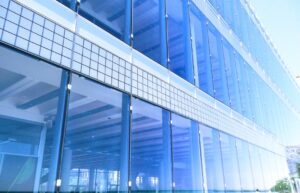What’s Good About Tempered Glass?

What Is Tempered Glass: All You Need To Know
When we talk about glass, one thing that comes to mind is durability. While there’s a lot of glass you can choose from, there’s something about tempered glass that makes it the best option of all.
From protecting everyday gadgets to efficient residential windows and panels, tempered glass seems to be acing it in the market. But what is tempered glass exactly, and how was it made to have such durability?
What is Tempered Glass?
Tempered glass is an ordinary glass that has gone through numerous treatments involving chemicals and heat to achieve its strength. It’s made to be four to five times tougher than standard or annealed glass.
Above any other glass, it’s also considered the safest. Once tempered glass breaks, it only shatters into tiny harmless pebbled pieces, unlike the big shards from ordinary broken glass.
Related post: What’s Good About Tempered Glass?
The Strongest Glass
It’s strength is a product of careful treatments and processes. First, glass will be cut down to a desired shape and size. Then it’s examined for imperfections that might cause future breakage during the tempering process. Abrasives are then used to smoothen the sharp edges before it goes to heat treatment.
The heat treatment process involves a tempering oven where the glass is heated to more than 600-620 degrees Celsius. After heating, it goes through ‘quenching’ which is the opposite of the first process. The glass is cooled through a high-pressure air that’s blasted to the surface of the glass from different nozzles.
This cool-down process makes its outer surface go into compression, while its center remains in tension. Glasses that are in tension, like annealed glass, are more breakable than those in compression.
Though commonly mistaken as the ‘unbreakable glass’, tempered glass still is breakable. But with a standard surface compression of 10,000 psi, tempered glass breaks on a high 24,000 psi tension, compared to an ordinary glass’ low 6,000 psi. It also withstands moderate heat for about 470 degrees celsius, but not recommended for wood burning applications.
Uses of Tempered Glass
Tempered glass, because of its strength and safety, has been used on environments that require human safety.
It’s widely utilized for residential and construction purposes. It’s also the best option for vehicles as it’s not easily shattered on movement. It’s strength can also protect your gadgets without the worries of it looking misty over time.
For residential use, building codes recommend the use of tempered glass for these fixtures:
Related post: How Is Tempered Glass Made?
Windows
Either fixed or operable, residential windows having an area of more than 9 feet square are required to use tempered glass. Also if the windows ledges are situated about 8 inches above the floor, with the top edge more than 36 inches from your floor.
Bathroom and Shower Panels
The bathroom, shower, and other wet areas of the home or any building is considered accident-prone. Slips and falls are inevitable that’s why for shower panels, doors, and other glass fixtures, you should use the safest kind there is.
Doors
Building codes say that all parts of the door, may it be fixed, operable, sliding or swinging, regardless of the size, must be made from tempered glass. If the glass adjacent to the door is placed 60 inches from the floor, and if it’s within a 24-inch arc of the door, it should always be made from tempered glass.
With its durability, tempered glass is recommended for commercial purposes too. It’s burglar-proof, and won’t easily break when accidents happen.
Stairs
The use of glass on stairs improves aesthetics, but you shouldn’t turn a blind eye on safety. Tempered glass used on railings makes your stairs look good and safer to use.
Glass and appliance glazings that are adjacent to the stairs, should also use tempered glass to prevent succeeding accidents from happening.
Furniture and Appliances
It’s not only your gadgets that need the protection of tempered glass. Customize a tempered glass protector for tabletop surfaces, while cupboards, and cabinets should have tempered glass panels and doors.
Appliances, especially the ones that are usually in heat like ovens, stove covers, fireplace doors and other surfaces must be protected by tempered glass. Safety must always be observed and prevented, especially at home.
Tempered glass is your best choice for home and building use, but it also makes a big difference on how it’s made and customized to fit your needs. Our facility at One Day Glass crafts tempered glass according to your preferred specifications. And if you can’t figure out which one among your fixtures, appliances or furniture need it, contact us and we’ll be glad to help you out.
